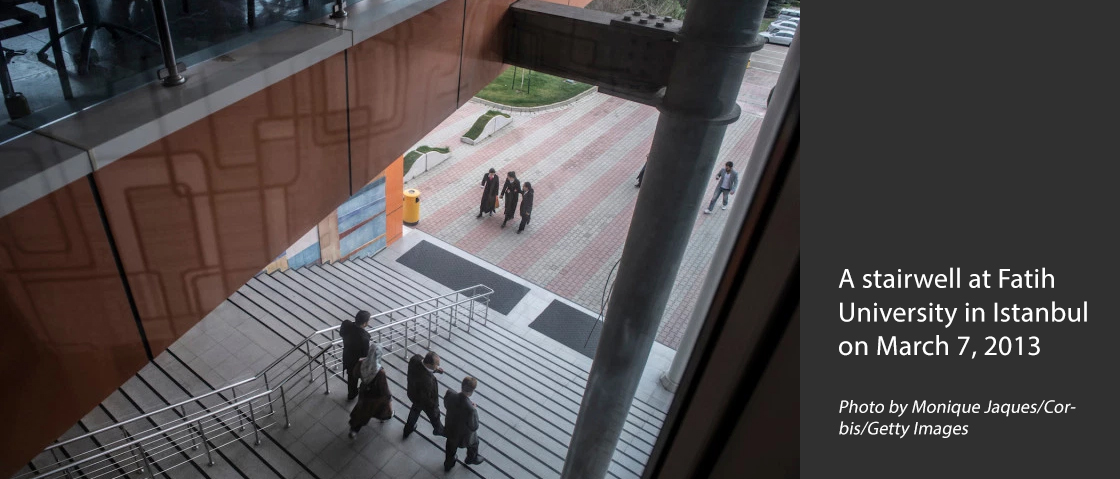As trials against the Gulen movement wrap up, a look at how deep its influence really was.
In Turkey, hundreds of trials of security personnel and civilians accused of participating in the failed 2016 coup against Turkish President Recep Tayyip Erdogan are coming to a close. The Turkish government, which survived the coup largely unscathed, accused a cleric, Fethullah Gulen, of masterminding the attempt. It vowed to uproot his widespread religious movement, known as Hizmet (Service). As a result, Ankara has shut down about 800 companies, 1,100 schools, 850 dorms, and 1,400 civic associations. It has jailed over 38,000 people and terminated over 100,000 civil servants in the police, judiciary, education, and health sectors. Workers in the business, financial, and media worlds have been caught up as well.
Like many Islamist movements, the Gulenists won citizen support by providing services. In fact, reasonably reliable government information uncovered in the aftermath of the 2016 coup attempt shows that its control over social services was notable, although it varied by region.
To see how deep the Gulen movement’s influence really was, we looked at publicly available data on the Erdogan government’s purge to map and measure the extent of Hizmet’s reach across Turkey’s over 900 districts. While the full accuracy of each individual affiliation on these lists can’t be tested, what matters for our main statistical analysis is the cross-regional variation in the influence, not the absolute numbers. We also used data scraped from official government websites on local public investments in education, health, and religious infrastructure, as well as data on non-Gulenist business associations and religious endowments, and information from the Turkish census and elections.
In our research, we found that the presence of Gulenists in various civil service sectors ranged from 1.5 percent to 11.3 percent of all civil servants. The Gulenist presence in education was striking, with influence across roughly 18 percent of all private dorms and 11 percent of all private schools.
The Gulenist presence in education was striking, with influence across roughly 18 percent of all private dorms and 11 percent of all private schools.
Educational institutions associated with the movement witnessed impressive growth over time and gained a reputation for producing high-performing students. The movement primarily emphasized the combination of religious and scientific training and was known to use educational institutions as a way to win the loyalty of many young people and spread Gulenist ideas.
Among higher-ranking bureaucrats, the portion of Gulenists appears to have reached 30 percent in the judiciary and 50 percent in the police force, the two bureaucratic sectors with allegedly the largest overall Gulenist networks. In terms of regional variation, the movement’s presence was highest in Eastern Anatolia and the Aegean region. This was surprising; before this study, conventional wisdom held that conservative regions were more favorably disposed to the provision of services by Islamists.
The differences do not map state capacity either. More than opportunism—stepping in where government services are poor—Gulenist service provision seems to be related to the presence of business elites who were actively associated with the movement. This makes some sense. Several works predating the July 2016 coup argue that Fethullah Gulen, from the early years of his movement, supported a free market economy as a way to produce wealth that could be funneled into providing services.
As such, the Gulen movement was geared toward creating a space for capitalism to coexist with religious piety; businessmen could be observant while also profiting from Turkey’s economic liberalization in the 1980s, which promoted entrepreneurship. Scholars such as the researcher Gabriel Piricky have gone as far as to compare the role of the Gulen movement in mobilizing pious businessmen to the role Protestantism played in entrepreneurship in the Christian world.
From early on, the Gulen movement used pre-existing religious conversation circles, known as sohbet, as a way to bring together business-minded religious people to trade and partner. In return, they were expected to donate money to the cause, a sort of premium for benefiting from the movement’s networks. Business associations, meanwhile, provided an institutionalized environment to sustain these meetings and functioned as a honeypot for prospective members. The more formalized these associations grew, the easier it became for the movement’s administrators to collect funds intended for welfare and service provision.
Any government would have reason for concern if a group with undemocratic motivations such as the Gulen movement reached enormous capacity in bureaucracy and social services. But the case of the Gulen movement also shows that ensuring freedom for civil society and reducing discrimination in the business sectors and public employment is very important for good governance, to make sure that no such movement gains control over these sectors. Turkey should keep that in mind as it faces down multiple crises including financial turbulence from a weakened lira and security threats from ongoing conflicts in Syria and Iraq.
Update, March 21, 2019: This article was updated to clarify the research methods behind the data presented.




